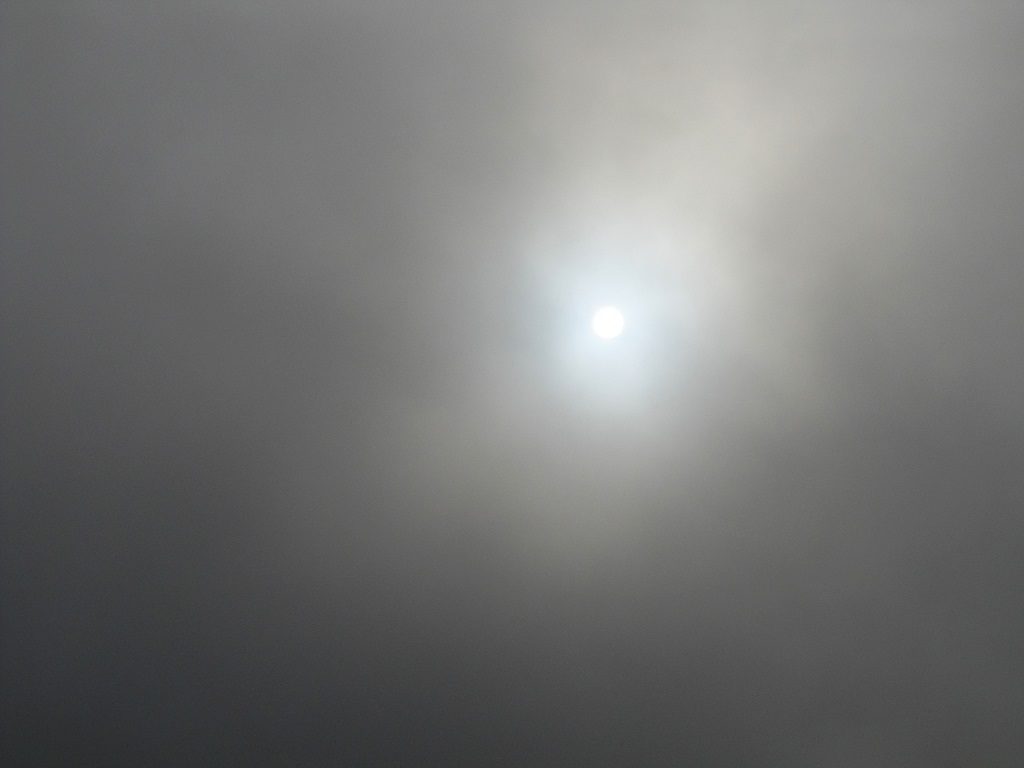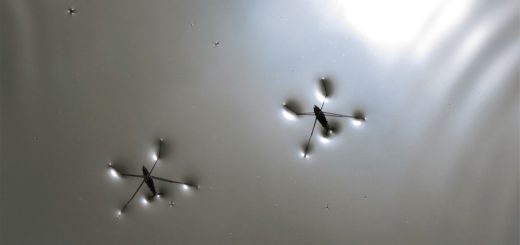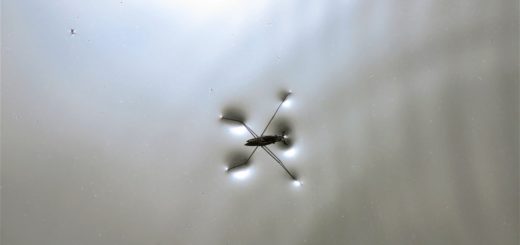Introduction to Metaphysics: A Dialogue (Part Three)
(If you have not done so, you should read Part One and Part Two of this epistolary dialogue before proceeding with Part Three.)
Biologist:
I am so depressed to send this reply… This is actually not a reply but more like Mayday. Be, it surely is a familiar word, but I’ve never met such a confusing one before. Even though it is not too much to say that “be” is the most common verb, it is extremely difficult to understand the meaning of the word. Be, exist, being, existence, property, essence… For two weeks, I really tried to understand them but now I don’t even know how to solve this. These are some of the unsuccessful drafts, and I need your help…
…A Confident Beginning…
I think I should let you know first about whether I well understood the difference between Being and beings, as it is basic and important to have the right definition. (Well, I’m a little bit afraid that I have the wrong one!) As I understood, “Being” is the idea of existence and the basic condition of thingness, whereas “beings” is used when referring to existents. So, in this conversation, “Being” is going to be more frequently used than “beings” because we are talking about the idea, metaphysics, rather than individuals. If I understood and explained properly, then let’s move on to the Being.
The philosopher, especially the metaphysician, is the person who stops to ask, “What are we actually saying when we say This is or This is X?” In other words, what does it mean to be? Is being (existence) a specific property of each individual thing? Is it in each thing independently of the mind thinking about that thing, or is “being” a product of our thinking?
I hope you know that I was struggling quite hard with these questions. These were so huge and complex to me! While thinking of them, I tried to organize my ideas and thoughts about them, and I’ll try to write and describe them here in detail.
In my opinion, as for the first question, to say This is X is the same as to define it as X, because you will put in X the identity or property of the object you are trying to describe. For instance, when I say about an apple, “This is a red or green, white inside, sweet, crunchy fruit,” the X part is the apple’s identity and property, which are defining features, provided that you described well. Accordingly, as for the second question, I also think I can say being is a specific property of each individual thing, as a defining feature.
As for the next question, I understood it is about the relationship between being and thinking, and how being exists. If mind thinking includes the whole process from perceiving to defining, then I think the question is asking which one is the first between existence and thinking, and I believe being, a specific property, comes first; being is in each thing independently of the mind thinking. I’ll elaborate on why I think like that comparing the two assumptions. I thought that, if existence is already in each thing whether we think of it or not, it will be discovering to know the existence; and, if existence is a product of our thinking, it will be creating to know the existence. In this case, as created being requires our cognition for its existence, we can say it is subjective compared to the discovered being and there is no being before our thinking. And let’s suppose we saw a rainbow; you thought it has 7 colors and I thought it has 4 colors. How can we speak about the three colors? Do they exist, or not? If they exist only to you, is being or property a term restricted in a universe or mind of an individual, not about the external, objective world? Or there is no such thing as the external, objective world? But I think there is an objective world separate from our experience, which can be explained by language. Humans have a variety of languages, but their meanings have many similarities and therefore can be translated. In my view, our languages are translatable because each word in each language is pointing to the same/similar object, whether visible or invisible, from the external world we share. Hence, I think there is an objective world (objects and their properties), and a product of our thinking or our sense only shows our realms of experience and does not determine the existence of its being in the objective world.
…A Few Days Later…
But how can I prove the existence of the property which I haven’t recognized yet? Moreover, how do properties, then, exist in the objective world? What exactly is the objective world? If I cannot answer these questions, does it make wrong the argument that being already exists before our thinking? I’ve been thinking about this topic a lot, but I still don’t know exactly… What is your opinion about this? And what did other philosophers think about this? I also wonder why it is important to discuss this. Could you please also explain why?
Do things exist in the same way that their properties exist? For example, if we see a red apple, in what sense does its “redness” exist? And is it the same sense in which the apple exists? Immediately, in a case like that, we can say that the redness of the apple cannot exist at all if the apple itself does not exist, whereas the apple could still exist if it were not red. Therefore, it seems we can say that red things are “more real” than their redness, since the things can exist without the color, but the color cannot exist without the things. (Hierarchy again.)
I think things exist in the same way that their properties exist, meaning that I agree that things do exist before our thinking. (I’m not very sure, though.) But regardless of the way of their existence, I see there is also a hierarchy, as you explained, as the existence of properties is founded on the existence of things. But I wonder how the apple could still exist even if it were not red. Do you mean green apples? But if you mean red apples, then how can the red apple exist without its property, identity, being? Wait a minute –
…A Few More Days Later…
Oh my goodness…… I feel like I understood nothing. I just read that you had written, in a previous e-mail mentioning Thomas Aquinas, that an object’s essence and its being are two separate things; In other words, its identity or definition does not include “existence,” although the object cannot be found in the real world without also sharing in the property of existence or being, and… an object’s essence and being are two separate things? I thought its being includes essence (identity or definition) or they can be the same, which was the basic premise of this reply… Why did I think of the Thomas Aquinas now? Was the premise false, then? Should I erase it all and start all over again? Please say no; it is a disaster… I’ve written this for more than one week.
Oh, I am not enough at all to understand metaphysics. It is too difficult for me. It is as if I am swimming in mud; No matter how hard I try, I cannot move forward.
But I really want to understand. Please help me! Can you see what is going on in my head?
Teacher:
Oh, yes I see it. And I love it! Every once in a while throughout this conversation, you have stopped to ask, as you just did, “I also wonder why it is important to discuss this. Could you please also explain why?”
And then you end with, “But I really want to understand.” There’s the reason. Does there have to be another, external reason? By external I mean, “It is important to discuss this in order to get this, or in order to achieve that.” Isn’t wanting to understand enough of a reason?
We experience things every day. If we just take them for granted, we can carry on with our day well enough. And yet a few of us are always inclined to ask “What is this experience?” What does it mean, where does it come from, how is it real, and how am I related to it? That kind of question needs no outside justification. You want to understand because you want to understand. Wanting to know is its own reason, because knowing is the most human urge of all. The desire to know is our highest aspiration.
And you know what? The more you think about what your experience means, the more you actually experience. Your world gets bigger and deeper when you look at it with wonder, and ask the deepest (and most impractical) questions.
Biologist:
Oh, you are right. My curiosity is sure enough to be the main reason for learning and to make this discussion important! And the metaphysical world is also quite interesting… For my bigger and deeper world, I should keep wondering and asking. I am just relieved that you received my SOS. I’ll patiently wait for your reply.
Teacher (morning):
You will be interested to learn that the most important and famous metaphysical treatise ever written, the book that defines all the basic questions of metaphysics, and discusses most of the possible answers, is Aristotle’s Metaphysics, and the very first words of that long book, the idea that announces the theme of the entire subject, is this famous sentence: “All men by nature desire to know.”
In other words, Aristotle says (and actually proves with a logical argument in the first paragraph) that the desire for knowledge is natural to humans. Not the desire for some result or practical benefit or degree or reward. The desire for knowledge itself, for its own sake. And therefore, the higher and more “pure” (impractical) the knowledge, the more naturally desirable and precious it is to us — if we are living as the highest version of ourselves, truly rational animals.
If we are primarily souls, not bodies, and if our souls are defined by reason, not bodily appetites, then the highest kind of thinking is the most purely human life. The life of theoretical reasoning, seeking knowledge for the sake of knowledge, is therefore the best life.
Teacher (evening):
Let’s go slowly here.
As I understood, “Being” is the idea of existence and the basic condition of thingness, whereas “beings” is used when referring to existents. So, in this conversation, “Being” is going to be more frequently used than “beings” because we are talking about the idea, metaphysics, rather than individuals. If I understood and explained properly, then let’s move on to the Being.
That’s not bad. Perhaps, to avoid limiting how these terms can be related to actual things by defining the terms too restrictively, we could slightly alter your description, and say that being(s) (countable noun) refers to particular things or properties which we find in the world of experience, whereas Being (uncountable) refers to the “thingness” or “propertyness” of the particular examples we experience. This “Being” is the immaterial “something” we are attributing to them when we say, “This is,” or “That is blue,” or “This is above that.” In those three examples, however, it is important to notice that we are attributing being in different ways: existence itself (it “is”), a quality (color), and a relation (“above”). Nevertheless, in all three cases, we are saying something “has Being” in some sense. Therefore, they are all “beings” in some sense.
But let’s not get lost in definitions just yet.
In my opinion, as for the first question, to say This is X is the same as to define it as X, because you will put in X the identity or property of the object you are trying to describe. For instance, when I say about an apple, like “This is a red or green, white inside, sweet, crunchy fruit,” the X part is the apple’s identity and property, which are defining features, provided that you described well.
But if anything you can say about an object using the be-verb is necessarily part of its definition, then does that mean each individual object has its own private definition? For example, I might say, “This apple is fifteen centimeters in diameter.” But of course there will be many apples bigger or smaller than this one. So if the property attributed with “be” is part of the thing’s definition, then this particular apple will have a definition of apple different from the definition of apple that I apply when I speak of most other apples. Shouldn’t a definition be applicable to all the individuals that fall under the name it defines?
That is part of what I meant, in a previous e-mail, when I separated the apple itself from its redness. This particular apple is red, and it could not be this particular apple if it were not red. But it could, in theory, be an apple without being red. Therefore, redness is not essential to “apple.” It is a property that some apples have, but not all. The same would be true of the color of any particular thing. In this way, then, we have to be able to say that something is more fundamental, or essential, and something less fundamental, or inessential. The apple has “appleness” (whatever that means exactly) as an essential property. It may also have redness as an inessential property. And if that is true of objects and their colors in general, then we could say that being an object with a color property is more fundamental, or more real, than being a property of an object. Colored things can exist in the world, at least logically, without being any specific color. Colors, on the other hand, cannot exist in the world at all unless they are found in an object. See the difference? And this would apply to all non-essential properties found in objects, or said “of” objects. The objects, then, are more real, because they can exist (logically) without the specific properties like a certain color, size, relation, time, and so on, whereas the properties cannot exist at all without the objects.
As for the next question, I understood it is about the relationship between being and thinking, and how being exists. If mind thinking includes the whole process from perceiving to defining, then I think the question is asking which one is the first between existence and thinking, and I believe being, a specific property, comes first; being is in each thing independently of the mind thinking.
On the other hand, if being means form or idea – like “life” in the case of living things — then to say things exist independently of any mind thinking them is to say that material existence comes first, and immaterial (intellectual) existence comes later. Then we would have to ask, if matter (potential) comes first absolutely, how would anything ever become actual? What would start the process of becoming actual (immaterial or intellectual) if absolutely everything existed materially before it existed as an idea or thought? Does the matter move itself?
Another way to ask the same question would be, “If the mind thinks of the existing objects as ideas or forms, but the objects fully exist independently of any mind thinking them, then what is the mind thinking when it does think of these objects? Isn’t it thinking an idea? If so, then where does that idea come from? How did that idea (or form) exist in the material object independently of (or ‘prior to’) any mind thinking it?”
I thought that, if existence is already in each thing whether we think of it or not, it will be discovering to know the existence; and, if existence is a product of our thinking, it will be creating to know the existence. In this case, as created being requires our cognition for its existence, we can say it is subjective compared to the discovered being and there is no being before our thinking….
But how can I prove the existence of the property which I haven’t recognized yet? Moreover, how do properties, then, exist in the objective world? What exactly is the objective world? If I cannot answer these questions, does it make wrong the argument that being already exists before our thinking? I’ve been thinking about this topic a lot, but I still don’t know exactly… What is your opinion about this? And what did other philosophers think about this?
Your first point here is a very logical concern. If I may restate the point, which is a good one: Either (1) being is in the objects before we think them, and our thought is discovering what exists independently of our minds, or (2) being is not in the objects before we think them, and our thought is creating what exists by thinking it, like artistic creation, or rather like God’s creation.
But what if there is a third option? Could we say that (3) being is in the objects potentially before we think them, but actually when we are thinking them? In this case, thought actualizes beings, rather than simply “creates” them. This would avoid your concern about each person having a subjective (self-created) reality, while also avoiding the problem of Being — which is ultimately an idea of the intellect — somehow “existing” in the world independently of the intellect itself. In other words, how can there be an object of thought (idea) “in” the material world independently of a thinking mind? The answer, my third option, is that the object of thought (idea) is in the matter potentially, but not actually until there is a thinker thinking it. According to this third option, then, we can say that there are no beings, and hence no world, unless there is Being, and Being is a pure intellectual object, which means it is a thought, which means (to be precise) that it is a mind thinking.
This third option, by the way, is not mine. It is basically Aristotle’s answer to the question you raised, which as I said is a very perceptive and important question. Aristotle, like you, wanted to avoid the implication that thought is simply creative. But he also wanted to avoid the materialist assumption that the world does not depend on mind at all, which, as he argues persuasively, is self-contradictory, since to say “the world does not depend on mind at all” is, for him, to say that thought does not depend on mind, which is incoherent.
Well, well, we are getting very deep into this question of being, aren’t we? Let’s keep going, as many of the greatest mysteries are still ahead….
Biologist:
That is why you like metaphysics and feel excited about metaphysical topics! All men by nature desire to know; this first sentence is impressive as it explains both how metaphysics began and why it is important/great, as I understood. I wonder how logically he discussed things and argued his opinion… The reasoning is difficult but somehow exciting.
And I just read the e-mail you sent this evening. Thank you! I was impressed by the “third option.” That is possible indeed…
Anyway, I’ll carefully read it again, and send a reply to it.
Teacher:
It’s a simple opening sentence — “All men by nature desire to know” — but it slowly becomes much more than an elegant introduction. It becomes the central idea of the whole book in a way, and the key to understanding Being and its role in the cosmos.
Biologist:
I’ve read your “helping” e-mail several times so far, and I’m writing this e-mail to say you are a born teacher! Thank you for your kind explanation. When I had a chance to teach another person in the past, I decided, thinking that teaching is extremely difficult, that I should rather be a good student and study hard, because, among many reasons, I realized it was another thing to suggest a proper explanation for the student’s understanding. I think you have a talent for this, and I’m happy to learn from you.
By the way, if I send you my reply full of misconceptions about Being despite this letter, then it would be a comedy… Well, let’s see if I am a student or a comedian.
Teacher:
There is no comedy, in the sense you mean, in trying to understand, and struggling. There is tragedy, however, in giving up on your mind due to fear of failing. Failure is our natural condition. That is comic in a way, seen philosophically. Socrates’ life is a lesson in how to see life comically, even while being perfectly serious about your soul, and resigning yourself to many failures.
And with that we conclude this epistolary dialogue on the question of being. The actual conversation between “Biologist” and “Teacher” will continue of course, as the most salutary and enjoyable conversations should. But in order not to mar an ongoing teaching and learning process by turning our future discussion into a self-consciously public exchange, I have promised my student and myself that the published edition of our conversation would end right here.



